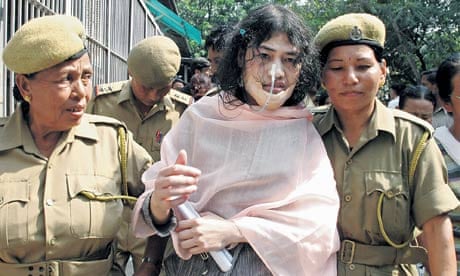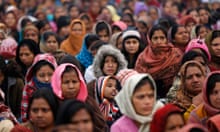Seeing her frail figure, looking much older than her 38 years, one wonders “Why is she doing this?” This is a lost battle, because the state is stronger than she is. She could be India’s Aung San Suu Ki – but because India is a “democracy”, not a dictatorship, hers will never be an international cause célèbre. Irom Sharmila lives in Manipur, in the north-east, and has been on a fast-unto-death for the past decade as a protest against the Armed Forces (Special Powers) Act. AFSPA was imposed in Manipur decades ago as a bulwark against insurgency.
Sharmila is in many ways an unlikely hero: born in 1972, she completed her school education and picked up some basic skills, such as shorthand. She then joined a social work organisation, and later a human rights body. But when she was 28, the brutal massacre of 10 people at a bus stand in Malom by the Assam Rifles forced her to take a stand. Among the dead were a 62-year-old woman and an 18-year-old boy (who had been the recipient of a national bravery award). Many thought that massacre was in retaliation against a previous attack on the armed forces by some suspected militants.
Sharmila has one simple demand – remove AFSPA, as it gives the army power without accountability. She began her fast to try to force the government to take action. It was a peaceful move – but within a few days she had been arrested and charged with attempted suicide. She was force-fed through a tube through her nose – a painful practice which continues today. She has been kept mostly in solitary confinement and released for a day or so (the law does not allow internment under the terms of her arrest for more than a year) and then rearrested.
Her courage and determination are extraordinary; she says of her plight that “There is more to life than death. My fasting is a means. I have no other.”
Kishwar Desai’s
Witness the Nightwon the Costa First Novel award this week.




Comments (…)
Sign in or create your Guardian account to join the discussion